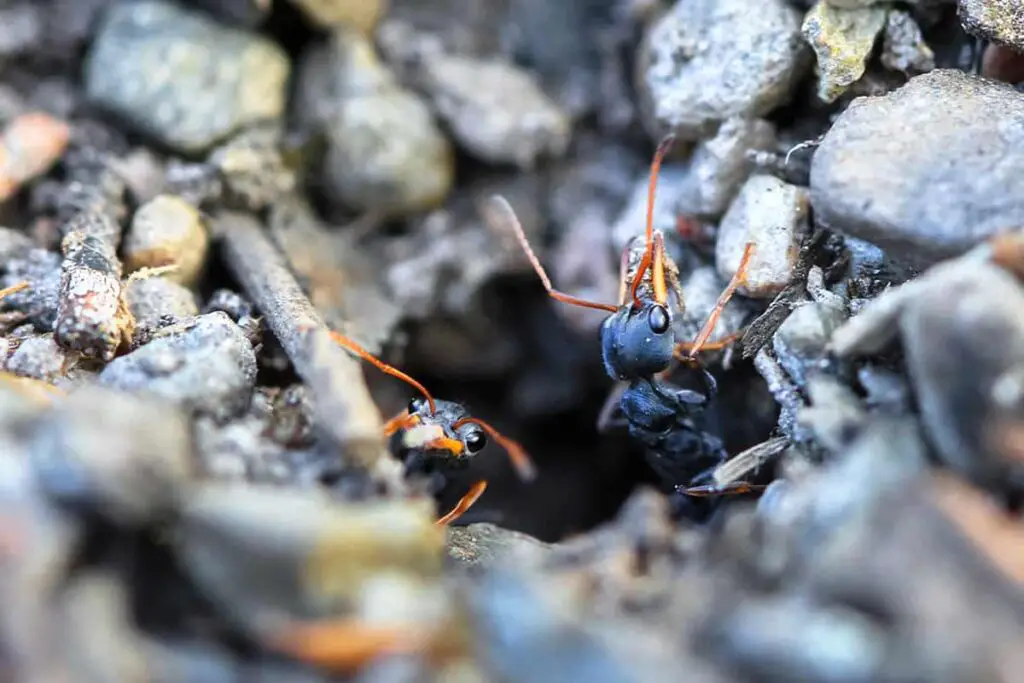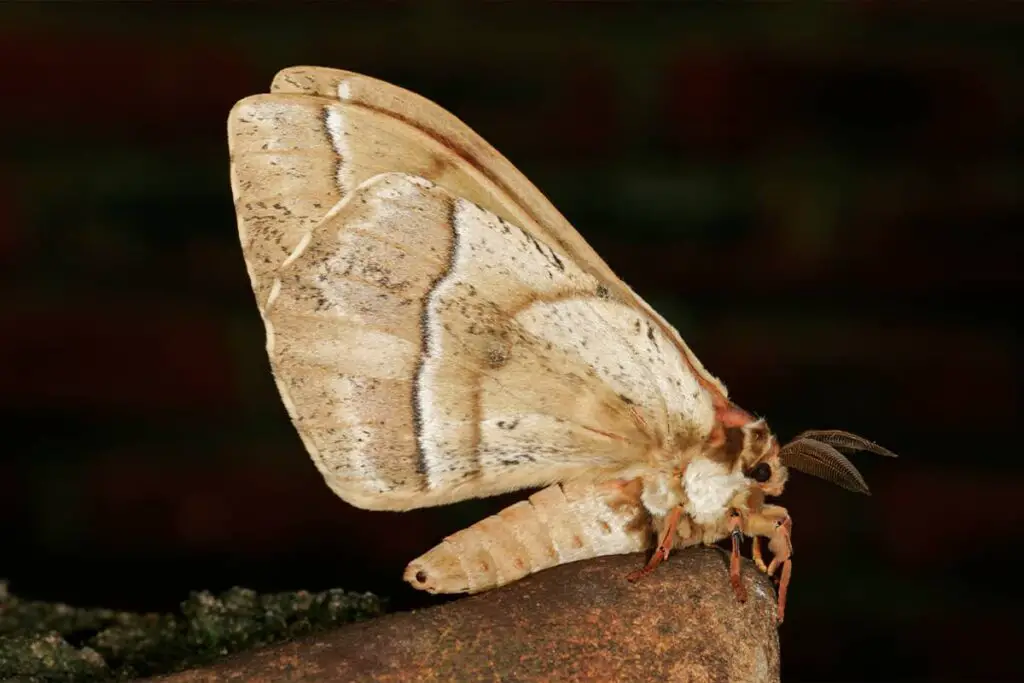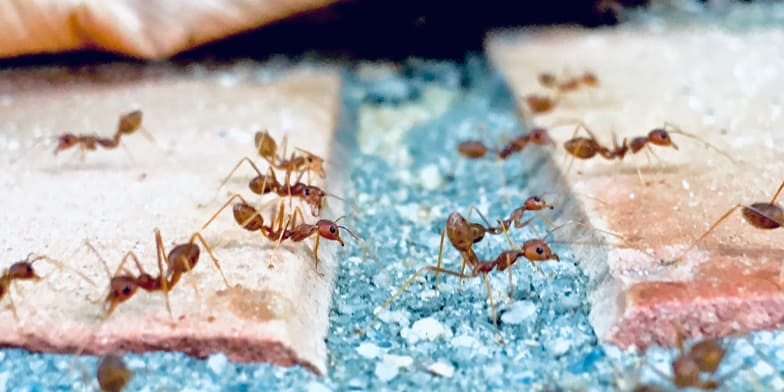
They may be small, but they’re smart, and as a colony there’s rarely a time when ants don’t work together like a well-oiled machine. This highly effective team is tailored specifically to find an abundance of both shelter and food, and they do it well, but that doesn’t necessarily mean we want to share our resources with these little sugar-loving insects.
Ants will not go away on their own unless the source that is attracting them is discovered and removed, and the path from which they came is wiped clean. This is because ants leave a scented trail in their wake so that the others in their colony can find their way to the food source and then back to their nest.
Although ants are merely trying to find shelter, food, and water for their colony, which as humans we can totally understand, our homes we’re not built to be shared with insect infestations.
This article will help you discover why you have little ants marching through your home, and explore the best ways to prevent them from coming back. If you don’t act, they’ll be here to stay.
Why Do I Have Ants?
Whether you clean your house regularly or not, every home is still susceptible to ants and other creepy crawlies.
Ants are always on the hunt for food and water and anywhere they might find moisture is generally a good place for ants to make themselves right at home. This is why you might often find ants in your bathroom or your kitchen.
You might think it’s strange to find them in the bathroom where you wouldn’t often have sugary crumbs laying around, but ants are just as likely to love water as much as they love sugar. After all, every living being needs water to survive.
Did you know that not all ants are attracted to sugar? Not only might you find ants in your pantry because of a sugar spill, but some ants are also attracted to grease among other ingredi-ants!
Here is a list of the most common ants you might find inside your home, and what might make your home so attractive to them:
Sugar Ants
Sugar ants are attracted to sweet things like sugar, cake, chocolate, and fruits. Basically anything with glucose and/or fructose.
Carpenter Ants
Carpenter ants are suckers for water and moisture. They love condensation, so it’s a good idea to keep areas where condensation builds up dry and as moisture-free as possible.
Fire Ants
Fire ants are found in warmer climates, and will seek shelter and water from your home. They also love greasy foods, oily foods, and will even go as far as to steal from your dog or cat’s food for their colony.
Rover Ants
Rover ants are fond of moisture near swimming pools, overwatered gardens, and plants. They wouldn’t say no to being invited into your bathroom either.
Pavement Ants
Pavement ants don’t tend to be as picky as other ants, and will go for almost anything they can get their mandibles to carry. Pavement ants tend to go for cheese, honey, bread, meat, seeds, the list goes on.
How To Get Rid of Ants
Now that we know the types of ants and why they might be entering your home, let’s explore the best way to get them back outside where they belong.
Getting rid of ants is not always a simple and easy solution. You could try chemical sprays, and you could try scrubbing your house from floor to ceiling, but if ants are aware of a good food and water source they will continue to follow the colony’s scent trails to the gold mine inside your home. Cleaning and spraying may not deter them for long.
There are, however, numerous other methods that you can try to be rid of your ant infestation for good.
Here is how you can get rid of and prevent ants from coming back inside your home:
#1) Find out what they’re after
Before getting too upset and cleaning up the ants as soon as you see them, we recommend finding the source first – as then you’ll discover why they’re there in the first place.
Don’t ruin the working line the ants have made for themselves, and follow the trail leading further inside the house. Once you’ve found what the ants are looking for, that will help you in two ways.
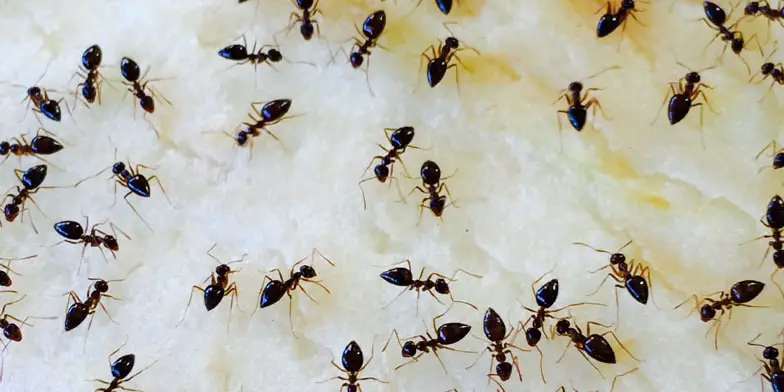
Once you find their food source, you’ll know what type of ants they are, and what you need to clean or dry up to prevent them from coming back.
#2) Be patient and follow the trail back to their home
You’ll need to know where the ants are coming from in the first place too, so that you can block their access point to your home.
Ants are tiny and are great at getting through even the smallest of cracks that you didn’t even know were there. Follow the ant trail leading back towards the ant nest to find how they’re sneaking in.
#3) Seal the entrance
You can try to seal the gaps in your home through which the ants are sneaking in, but remember that ants can go almost anywhere they please, whenever they want. If you take care to seal this entrance, they may just find another one nearby and keep coming in.
We do still recommend sealing access points wherever possible, because this can deter and prevent them for a little while until they find a new entrance. In the meantime you can carry on to step four.
#4) Exterminate the colony
If you have a persistent ant problem and you’ve followed the worker line back to the nest, it may be time to remove the colony.
We would recommend using natural remedies, or a type of nest killer that can be placed near the entrance so the ants are more likely to be drawn to that food instead of human crumbs.
Nest killer food works by providing scavenging worker ants with an poisoned yet irresistible food source within a little bait station. The workers will swarm the station, and take the poisoned food back to their nest. Eventually this will food will be spread to the entire colony, and all the ants will die.
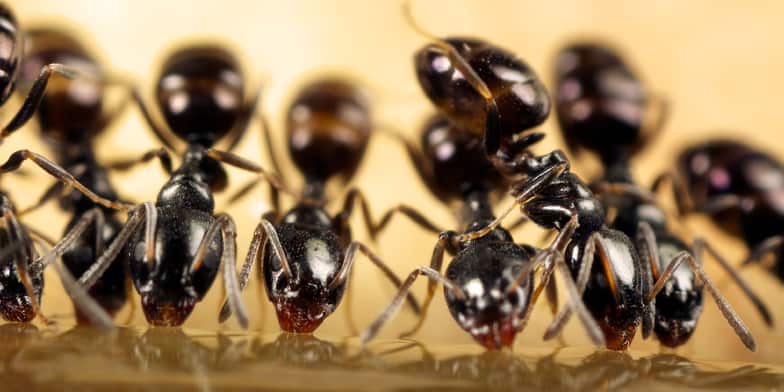
The bait stations are small enough that you can put them where animals won’t eat them and where children won’t find them, but ants easily will. You will likely notice ant activity will initially dramatically increase around the bait stations, but this will not last. Always remember to read the instructions carefully.
Using natural remedies
People have used natural remedies to curb ant infestation for centuries, and some of them have been proven to be just as effective as modern solutions. If you’re having ant problems, but you don’t want to call an exterminator, try some of these HealthLine approved alternatives.
- White vinegar is an effective ant killer and repellant
- Peppermint is a natural deterrent for insects, including ants. Try mixing peppermint oil with some water and use it as a spray. Alternatively you can use peppermint oil around the house, near access points, or even at the entrances to the ant nest itself.
- Tea-tree oil can be used the same way as peppermint oil, and so can eucalyptus.
Call in the professionals
If your problem persists, or you really want to be sure that the issue is resolved as soon as possible, you can always contact a professional ant exterminator to sort out the issue before it becomes an infestation from which you can’t run or hide.
Exterminators will identify the problem, evaluate the situation and which type of ants are making themselves at home in your house, and implement a solution. This is usually in the form of a chemical repellent.
Conclusion
Ants rarely go away of their own volition. They know what they want, and they’re very effective at finding it. If you discover that you have an ant problem in your home, by following the above steps and acting quickly, you can avoid further infestation.
Where possible, avoid harsh chemicals and sprays that can cause yourself and animals harm. If you are struggling to contain the ant incursion, consider calling in professional help, or try some of the suggested low-impact natural home remedies. Rid yourself of those pesky ants, and send them marching straight back out the entrance they came in from.
References
What Attracts Ants and How Do I Get Rid of Them? | Pest Defence
Ants in the Kitchen? Here’s How to Get Rid of Them | Kitchn
The trick to getting rid of ants for good (it’s not a spray) | The Washington Post
Driven by a passion for those tiny creatures that rule our world, we at Bug Domain strive to be your go-to resource for information on insects.


